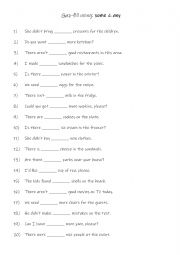
|
Gap-fill using: some & any
Students read the sentences and complete the gap-fill with the correct quantifier. This worksheet is suitable for A1-A2 students. Answers on page 2
Level: elementary
Age: 8-100
Type: worksheet
Downloads: 120
|
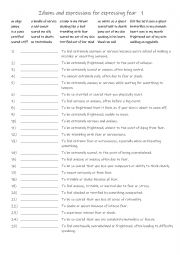
|
B2-C1 Idioms and expressions for expressing fear 1
First, students need to familiarise themselves with the 20 idioms and expressions and their meanings. Then they read the definitions to see which one is being described and write that word in the space provided Answers on page 2.
Level: advanced
Age: 12-100
Type:
Downloads: 101
|
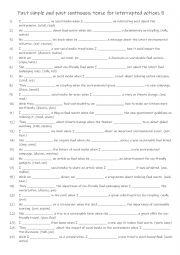
|
A1+-A2 Past simple and past continuous tense for interrupted actions 4
Understanding how to use these tenses together enables you to narrate stories or describe situations more naturally and accurately. First, students need to familiarise themselves with the 2 tenses and their usage. Then they read the sentences to see which one is needed to complete the sentences in a natural way. Answers on page 2
Level: elementary
Age: 8-100
Type:
Downloads: 111
|
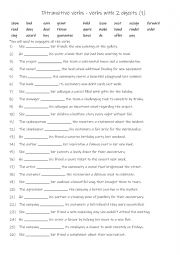
|
B1-B2 Ditransitive verbs - verbs with 2 objects (1)
Learning ditransitive verbs�verbs that take two objects�helps students express complex ideas more naturally in English, especially when describing actions involving both a direct object (the thing being acted upon) and an indirect object (the recipient of the action). For example, in sentences like �She gave him a gift,� �him� is the indirect objec...
Level: intermediate
Age: 9-100
Type:
Downloads: 107
|
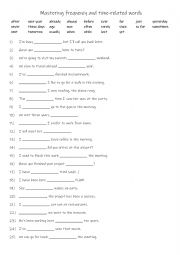
|
B1+ Mastering 25 frequency and time-related words
Using these words naturally makes students conversations more engaging and helps others understand the timing and frequency of events better.Students read and complete the gap-fill sentences with a suitable word in bold. Answers on page 2.
Level: intermediate
Age: 10-100
Type:
Downloads: 142
|
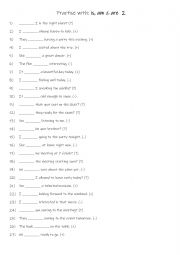
|
A1 Practise with is, am & are 2
Students read the sentence and complete the sentence with the correct form of the verb to be. They use the (+) or (-) sign at the end of the sentence to see if it needs a positive or negative form of the verb to be. Each form is used 3 times! Answers on page 2.
Level: elementary
Age: 7-8
Type:
Downloads: 119
|
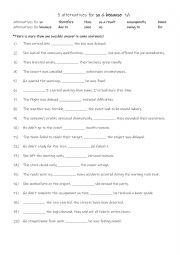
|
5 alternatives for so & because 1A
First, students need to familiarise themselves with the 10 words and check their meaning and use. Then they read the sentences to see which one is needed to complete the sentence. Each word is used 2 times! Answers on page 2.
Level: elementary
Age: 9-100
Type:
Downloads: 102
|
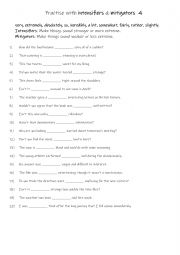
|
B1-B2 Practise with intensifiers & mitigators 4
First, students need to familiarise themselves with the intensifiers & mitigators and their use. Then they read the sentences to work out which one is needed to complete the gap-fill. Each intensifier & mitigator is used 2 times! Obviously, there are more than 1 possible answer! Possible answers on page 2
Level: intermediate
Age: 11-100
Type:
Downloads: 124
|
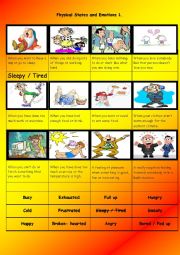
|
Physical States and Emotions Part 1 of 4
Students read the physical state or emotion description then match it to the correct feeling. Part 1 of 2.
PLEASE NOTE:Part 2 will be uploaded for Thursday along with a crossword and word search.
Level: elementary
Age: 8-100
Type: worksheet
Downloads: 287
|
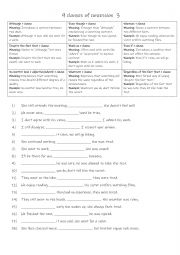
|
B1-B2 9 clauses of concession 3
First, students need to familiarise themselves with the 9 clauses and their meanings. Then they read the sentences to see which one is required to complete the gap-fill. Each clause is used 2 times! Answers on page 2.
Level: intermediate
Age: 10-100
Type:
Downloads: 125
|












